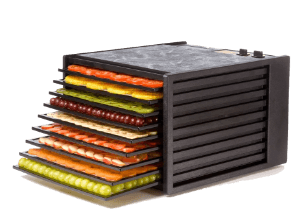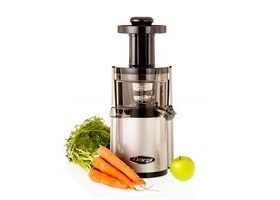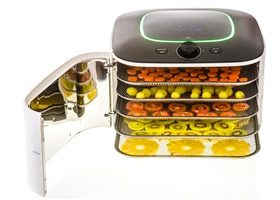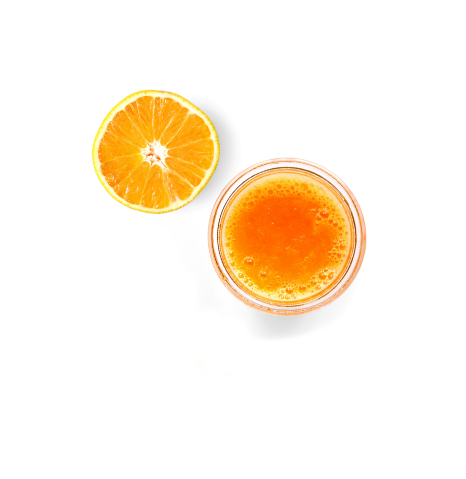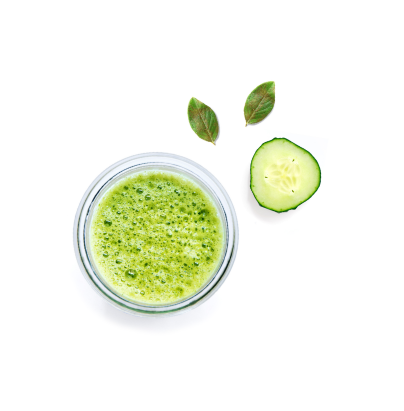Juicer FAQs
Have a look through our frequently asked juicer questions below and if you still can’t find the answer and would like to ask us something – click here
- Which is the best juicer?
- Which is the easiest juicer to clean?
- Which juicer gives the most nutritious juice?
- My friend has cancer and wants to try and fight the disease through diet, which juicer do you recommend?
- How much juice is it safe for me to drink?
- I’ve heard fruit juice is fattening but I’ve also heard that it is good for weight control, which is true?
- I’m new to juicing and I don’t want to break the bank getting started. What is a good choice for me?
- Which (Fruit & Vegetable) juicer is the best value for money?
- Why do I need a different machine for juicing oranges?
- What is wheatgrass juice?
- What is GE Ultem and does my juicer need to have GE Ultem Parts?
Q: Which is the best juicer?
A: That depends. The best juicer is the one that is the closest fit with what you want it to do. That varies depending on your lifestyle and your priorities. Someone with apple trees will be looking for a completely different solution than someone wanting to juice some of the contents of their weekly organic veg box. Different juicers have different strengths and we try to tailor our recommendations to the main priorities of the customer, so there is no single answer to this question. In fact the most honest answer is to ask a series of questions in response. What things do you want to juice? Is it important that your juicer can juice the more specialist ingredients like wheatgrass? How important is the time you spend with your juicer in relation to the results you want to achieve? What is your budget? Are you juicing to combat ill health or just to supplement good health? Sometimes the answer is easy if we know just a few things about the person who is asking, so if you are having difficulty choosing we welcome individual enquiries and we will do our best to point you in the right direction. You might also want to read our ‘Choosing Your Juicer‘ page for the knowledge on this topic.
Q: Which is the easiest juicer to clean?
A: When you make juicing part of your lifestyle, the clean up process is less of an issue and juicing enthusiasts don’t mind spending a few minutes cleaning up even the more complicated twin gear juicers. But it is important and if you are a busy parent wanting to whizz up a few pints of juice before the school run, time can be an important consideration. Some juicers have parts that are dishwasher safe but that advantage is limited for one simple reason. The bit that takes longest to clean on most juicers is the filter or screen that separates juice from pulp and this will not come clean in a dishwasher because fruit and vegetable fibres get lodged in the tiny filter holes. The best way to clean this part is with a brush under running water. The easiest screen to clean comes with the Champion juicer because the fibres move across the screen during the juicing process instead of being forced into the holes, literally a few seconds and you are done, so this juicer would be the first in line for ease of cleaning. Next easiest are the centrifugal juicers because access to the large screen surface area is usually good. Next in line are the single auger type, the conical screen on these is a tiny bit more fiddly to clean and the ones that take longest are the twin gear juicer screens. It should be emphasised though that the longest clean up still takes just a few minutes when you get to know your machine and this is a small price to pay for such a healthy habit. Apart from the screens, the number of separate parts will determine how easy you find the rest of clean up. Consider the time spent as part of an investment in your health and then you’ll have it in its proper context.
Q: Which juicer gives the most nutritious juice?
A: It is generally believed that twin gear masticating juicers are ahead of the field in this regard. This is because the produce you are juicing must pass between two stainless steel cylindrical gears which are extremely close together. These gears break down plant material thoroughly and release more of the ‘sticky’ nutrients associated with the fibres. The juice is visibly different, appearing more vibrantly coloured and some people perceive a richness of flavour not usually associated with the more common types of juicer available in the high street. The limited comparative research that is available shows that there isn’t a massive increase in the quantity of nutrients extracted by this type of juicer over others but it is significant, so if maximising the nutritional contact in your juice is your priority, twin gear juicers are the machines of choice. It is possible to go even further with a hydraulic press but for the vast majority of people the mess of this time consuming juicing method is very off-putting.
Q: My friend has cancer and wants to try and fight the disease through diet, which juicer do you recommend?
A: First of all here’s the legal stuff: we are not qualified to offer specific advice on treating any illness.
Fighting any illness by providing the body with the high quality nutrients in fresh, raw fruit and vegetable juice makes perfect sense. There are some different schools of thought on how to use juice when fighting cancer. Many nutritional therapists and organisations such as ‘Penny Brohn Cancer Care’ recommend using a masticating juicer and it is generally accepted that these offer the most nutritionally complete juice you can obtain at home in a single stage process. Twin gear masticating juicers do the best job and if you are ill you are usually motivated enough to spend the small amount of extra time needed to use this type of machine. Some manufacturers and websites will try to tell you that a particular juicer is way ahead of the field and when you are looking for a juicer to combat cancer the confusion created by competing claims can be distressing, because you want to make the right choice. ALL the popular twin gear juicers give similar results, so don’t be put off by some of the nonsense out there. Choose on the features that appeal to you most because the resultant juice quality will be largely the same whichever model you go for. If your budget won’t stretch to a twin gear machine such as the Omega Twin Gear, single auger masticating juicers like the Vidia SJ-002 will do a great job, as will the Champion juicer. It is important to remember that even a good centrifugal juicer will get plenty of high quality nutrients into the body.
Q: How much juice is it safe for me to drink?
A: First of all here’s the legal stuff: we are not qualified to offer nutritional advice.
There are a lot of different opinions on this and there is no single answer that fits everyone. If you have any illness or medical condition, always consult your doctor before making significant changes to your diet. For a healthy individual a few glasses or even a few pints of fruit and vegetable juice a day should be safe if it is taken as part of a well balanced diet. You can get too much of a good thing as we all know so there are some exceptional juices where smaller amounts are recommended. I wouldn’t want to drink even 5 fluid ounces of wheatgrass juice in one day, because this is a particularly intense and concentrated juice that can have a very ‘cleansing’ effect on your digestive system if you drink too much at once! A one ounce shot of wheatgrass is said to contain the same nutrients as a few pounds of fresh veg, so a shot glass is usually enough of this particular juice to take in one day for most people. I had a friend who used to juice a full sack of carrots every week just for himself and he seemed to be very healthy – that’s a pretty cheap form of fake tan if you want the same orange glow as some TV presenters, but most of us would consider that level of carrot juice consumption to be a little excessive! Carrot juice is fantastic, but juicing a variety of fruit and vegetables makes more sense and gives you a broader range of nutrients. Drinking excessive quantities of fruit juice might be an issue in terms of sugar levels but a couple of glasses a day is usually fine if you are healthy. There are no hard and fast rules and some people suffering ill health will be advised to drink significant amounts of alkalising vegetable juices by their therapists. It is unlikely that most people will experience problems with what is, after all, a safe and natural food. Some people claim great benefits from going on a ‘juice fast’ or ‘juice cleanse’ where nothing but juice is consumed for a period. In such cases it would be necessary to ingest several pints of juice a day and so far we haven’t heard of anyone getting less healthy by doing this.
Q: I’ve heard fruit juice is fattening but I’ve also heard that juice is good for weight control; which is true?
A: This is a great question and it’s great to have the opportunity to contradict some of the nonsense in the media about juice and smoothies being ‘fattening’. Maybe this can be true if you are talking about some of the shop-bought sugar-enriched junk masquerading as health drinks. Juicing a variety of fruit and vegetables can – and in our experience does – help you to achieve your natural body weight. For maximum health benefits it’s widely recommended that you juice more vegetables than fruit. You may have heard of the 80/20 rule and if you aim for at least 80% vegetables when juicing it is highly unlikely to be a ‘fattening’ activity. If you eat a lot of cooked food in your diet, you could be missing out on getting enough of the vitamins, minerals and enzymes present in uncooked food because these nutrients are changed by heat. Popping vitamin pills to compensate is a dubious substitute for taking these nutrients in their natural form. Your body craves good nutrition and these cravings can inadvertently lead you to over-consume ’empty calories’ in the form of cooked and depleted foods in an effort to satisfy your natural need for good nourishment. But if you give your body enough of the important nutrients that it craves, it stands to reason that it stops asking for as much food. Juicing is a great way to get readily absorbed, high quality nutrients and this is supported by the experience of the UK Juicers team. One customer reported having lost six stones as a result of adopting the juicing lifestyle. An accompanying increase in energy levels and a sense of increased vitality is a happy side effect that is also often associated with drinking juice. If you give your body the broad range of vitamins, minerals and enzymes that are abundant in fresh fruit and vegetable juices, a reduction in appetite is a natural and common experience. Don’t take our word for it; try it yourself and let your body decide.
Q: I’m new to juicing and I don’t want to break the bank getting started. What is a good choice for me?
A: The single most important deciding factor in determining whether people continue with juicing as part of daily life is how user-friendly their first juicer is. Some of the cheap offerings in the high street end up sat in a cupboard doing nothing after the customer gets frustrated by the experience of trying to use them. We don’t sell cheap juicers. All our juicers are tested extensively before we put them on our website. We want you to continue to use your juicer and experience the benefits, so in answer to this question, be prepared to spend a little bit getting started. Our ‘entry level’ offering is the Nutri Juicer Cold with an extra large feed chute that saves a little time on preparing your fruit and veg for juicing. It’s quick and easy to use and clean and looks good enough to leave out in your kitchen, ready for use. The juice only ever makes contact with hygienic stainless steel during the juicing process and all the juicing parts are dishwasher safe. This juicer is unbeaten in the number of times The Independent has selected it as ‘Best Buy Juicer’ in theirproduct features – the last time being 2016.
Q: Which (Fruit & Vegetable) juicer is the best value for money?
A: First and foremost you need a juicer that is capable of juicing all the ingredients you regularly want to juice, so you might get great value for money in a centrifugal juicer if you mainly juice hard fleshed ingredients, while it would be terrible value for money at juicing leafy greens or soft fruits. If you need help choosing just give us a call. But if we have to pick an ‘all rounder’ winner over the long term it has to be the Omega VSJ Juicer. It gives the highest juice yield across the widest range of ingredients and will save money on juice costs over the years, paying for itself in those savings alone. It is very reliable and has a great manufacturers warranty.
Q: Why do I need a different machine for juicing oranges?
A: You can juice oranges in most fruit and vegetable juicers but you have to peel them first. The best juicing orange varieties (Valencias, Salustianas, Delta Seedless) are also the most hassle to peel, so if you want a daily OJ it is usually more convenient to use a dedicated citrus juicer. With a citrus juicer the only preparation needed is to cut the orange in half, making for a very quick and easy juicing process.
Q: What is wheatgrass juice?
A: Wheatgrass juice is the juice extracted from young grass shoots which have been grown from wheat berries or grain. It is very high in nutritional values and usually only taken in shot glass size portions. Wheatgrass juice is believed to have healing and cleansing properties and is often recommended by Nutritional Therapists. Grasses grown from other grains such as Barley and Spelt are also juiced by some enthusiasts. To find out more about this read our wheatgrass page. Not all juice extractors can cope with this fibrous grass so if you are considering it check out our Choosing a Wheatgrass Capable Juicer section.
Q: What is GE Ultem and does my juicer need to have GE Ultem Parts?
A: GE Ultem is a brand name given to a type of plastic that is now being used to manufacture juicer parts. The manufacturers of juicers using this material use the phrase ‘Up to eight times stronger’ to describe its strength properties, but anyone who has read around our website will know that we are not big fans of such marketing speak. The phrase is meaningless, because it means anything from one times stronger upwards, so the real question that needs answering is what are the advantages for someone who is choosing a juicer? In this case the jury is still out. GE Ultem is to some extent solving a problem that doesn’t really exist. The juicers in our range that don’t use Ultem for their juicing augers and screens are not subject to frequent breakages in normal use, so even if it is eight times stronger, the advantage of paying extra for Ultem parts is debatable. Juicer parts don’t usually break unless you are doing something wrong and in our experience GE Ultem offers no massive advantage when it comes to accidental damage. We have already seen that Ultem parts can break if you are asking the juicer to do something its not designed for. It’s too soon to say whether the wear and tear advantage is worth the extra money, but judging by how often we have to replace non-Ultem plastic parts for our customers because of wear, I would say again that it is possibly solving a problem that doesn’t need solving. A cynical point of view might be to say that it is presented as a must have feature to allow a manufacturer to charge more for an ‘Ultem’ model and make a little extra on every sale.
 Register / Login
Register / Login 





